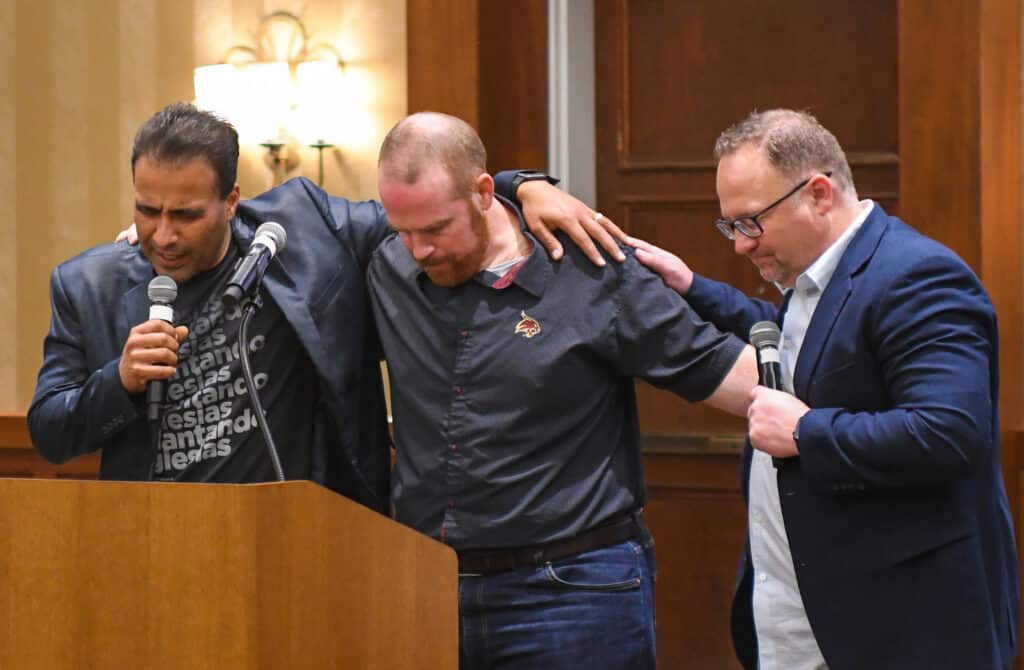My family has moved more than a family should. We’ve been the new people in two regions of the country, two small towns, four cities and several churches. Small towns, like churches, can be close communities where strangers remain somewhat strange for years. No place is as welcoming as your childhood home but most of us don’t live there any more.
I thought of that as I looked at our report on the changing makeup of our Texas communities. Many have noted, and for years, the influx of people from all over the world to the cities and towns of our state. But what is our responsibility as natives in the land when confronted with the reality of accelerating immigration?
This is not a column about border security or legal status. I’m a big fan of border security and of the law. We face a very challenging political problem in addressing the reality of our porous borders and the presence of millions of outlaw immigrants. I have no easy solutions for that. Our challenge as churches is more local and attitudinal. That’s where I’d like to focus for a bit.
First of all, we need to provide for the spiritual needs of newcomers without regard to their legal status. We’ve already made this need a priority. A dazzling selection of ethnic and language churches have arisen through partnerships between state conventions, associations, and already existing churches. The job is not done but we’ve demonstrated that we get it.
And yet, the ubiquity of separate but equal ministries both addresses and ignores important issues in our relationship with those strange to us.
It is a fine thing to provide a ministry that works within the cultural habits of an ethnic group, but those cultural habits should change over time. Minority communities should be affected by the larger population. They should also affect that population with some of their own distinctives. It happens but both parties seem to resent it. We don’t really mind new people coming in but prefer to keep to ourselves.
I noticed this when I first moved to the Midwest from Texas. The church I served welcomed me and was kind to my family in many ways, but we didn’t hang out. They had family and lifelong friends and preferred that company. We’d invite people over and they’d come, but return invitations were very rare. I was a stranger and, without being mean, folks in our church were fine with me finding some ex-patriot Texans to fellowship with. Understandable but wrong. We were a church and should have looked beyond merely circumstantial differences.
The experience of Christians newly located in the United States has got to be like that one I’ve described, but greatly multiplied. We’ll help, be compassionate, show some elements of partnership, but keep fellowship within our traditional circle of trust.
IT’S MINE, RIGHT?
My first conviction is that we, the natives and the majority culture, should repent of our “this-place-is-ours-because-we-were-here-first” mentality. This is present when Yankees move into our Southern towns after an employment relocation. It’s obvious when First Baptist Church, Anywhere, is surrounded by new housing additions.
The attitude rules when my community, but not my church, becomes more ethnically diverse. We prefer that things stay the same, only more so. It is a hard-hearted preference.
If we’ve helped build a great church and a healthy community, it becomes a thing we hold in trust for the God who enabled such a miracle. Just as with everything else we’ve been given, it’s for his glory and not for our comfort. We must, therefore, hazard our close fellowship and peaceful little community by generously sharing it, including ownership and management, with those the Lord brings our way.
STRETCH THE COMFORT ZONE
Second, we are too comfortable with culturally homogenous churches. Forced integration has failed repeatedly but our true desire should be for churches that become the culture of their members regardless of their heart language or accent. For that to happen we’ll need to do something radical.
Instead of waiting for our churches to start looking like the community cultural














